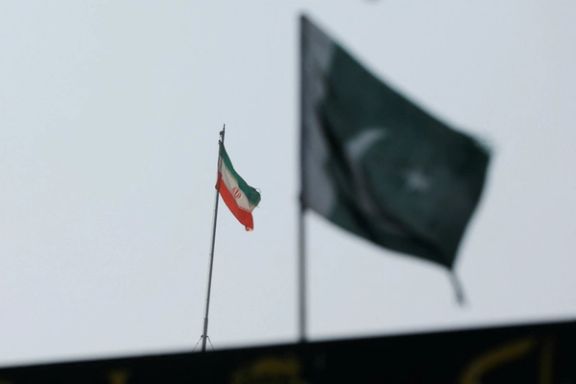US sanctions block Iran's energy revenues in Pakistan, Iran officials say

Iran's oil and electricity export revenues are blocked in Pakistan due to US sanctions, according to an Iranian Chamber of Commerce official.

Iran's oil and electricity export revenues are blocked in Pakistan due to US sanctions, according to an Iranian Chamber of Commerce official.
Amanollah Kahrazehi, speaking to local media, pointed out that the strong US presence in Pakistan, funding military expenses, is the primary reason for the complexities in Tehran's economic ties with -Islamabad.
Nonetheless, he discussed the imports, which appear to serve as a potential substitute for monetary transactions: “Since the beginning of this year [20 March], the trade volume between the two countries has exceeded $928 million, with rice, cotton, and sesame remaining the primary commodities imported from Pakistan to Iran.”
Earlier in August, Iran’s Customs Administration reported that new restrictions imposed by Pakistan on the entry of Iranian goods have resulted in a downturn in trade between the two nations, without providing specific details.
Meanwhile, last year, Iran, under the weight of sanctions, enthusiastically highlighted its ability to export gas and oil to Pakistan and "reduce reliance on the dollar," as Pakistan unveiled a list of goods open for a barter arrangement between the neighbors.
Amid critically low foreign exchange reserves last year, barely enough to cover one month's imports, Pakistan urgently sought to manage a balance of payments crisis and control inflation, which had surged to nearly 38%. The Pakistani government issued a special order allowing barter trade with Afghanistan, Iran, and Russia for specific goods, including petroleum and natural gas, as announced by the Ministry of Commerce.
Russia, also under heavy sanctions, was also an eager supplier of energy to Pakistan as the West moved away from its resources following Moscow's invasion of Ukraine in February 2022.
Last year, Pakistan, traditionally an ally of the US, received its first shipment of crude oil and liquefied petroleum gas from Russia. The Russian embassy noted that the gas delivery was facilitated via the Sarakhs Special Economic Zone with Iranian assistance.
Nonetheless, it was later revealed that the plan had fallen short of Pakistan's expectations, with the anticipated benefits being undermined by higher shipping costs and the inferior quality of refined products compared to those produced from crude sourced from Pakistan's primary suppliers, Saudi Arabia and the UAE.
Dalga Khatinoglu, an oil, gas, and economic analyst for Iran, told Iran International that Iran exports a range of petroleum products and electricity to Pakistan, including approximately 500 gigawatt-hours of electricity annually.
He noted that Iranian customs data reveals the sale of around $20 million in propane and $50 million in butane to Pakistan last year—both of which are raw petroleum products in the form of liquefied gas. Additionally, he highlighted that Iran exports fuel oil (mazut) to Pakistan, a trade that does not appear in the official statistics.
While Pakistan produces crude oil and natural gas, its output is insufficient to meet domestic demand, necessitating the import of both crude oil and refined petroleum products to bridge the gap.
In May, it was revealed that Iranian traders are smuggling over $1 billion worth of fuel into Pakistan annually.
The crippling sanctions, levied for Iran's nuclear program, human rights abuses at home and support for Russia's war on Ukraine, have prompted Tehran to seek alternative markets. It has led to a substantial rise in smuggling operations across the 900-kilometer Iran-Pakistan border.
The report disclosed that, in the past year alone, approximately $1.02 billion worth of Iranian petrol and diesel was illegally transported into Pakistan, accounting for about 14% of the country's annual fuel consumption
The significantly lower cost of Iranian fuel compared to domestic supplies caused challenges for Pakistani refineries in maintaining stock uptake, further exacerbating the country's own economic difficulties.